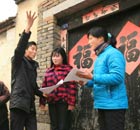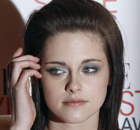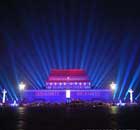Top News
Cavs investor buys into Chinese basketball league
(Agencies)
Updated: 2010-02-24 10:48
 |
Large Medium Small |
BEIJING: After buying a share of the NBA's Cleveland Cavaliers and introduced little league baseball to China, Jianhua 'Kenny' Huang now aims to transform professional basketball in his homeland.
As an investor in China's National Basketball League, Huang says he'll introduce cutting-edge management practices adopted from England's Premier League football, the NFL, and other leading overseas competitions.
The new NBL also plans to heavily promote homegrown talent, distinguishing itself from the dominant Chinese Basketball Association, where 19 of the 20 top scorers last year were foreigners.
Huang had been relatively unknown outside business circles before becoming the public face of an investment group that last year snapped up 15 percent of LeBron James' Cavaliers.
He has pledged to inject several million dollars per year into a new Chinese youth league, and also partners Chicago-based sports marketer Marc Ganis as China business representative for the New York Yankees.
Basketball is popular in Chinese, especially among young urbanites with growing incomes to spend on tickets and merchandise. Yet while the CBA has produced talent such as Houston Rockets center Yao Ming, the league has yet to truly take off with the domestic audience.
Huang says the timing of his new venture fits with a new government emphasis on broader public participation in sport. Having invested heavily in new venues, local officials are now anxious for fans to fill seats, he says.
Huang's company, QSL Sports, has signed a long-term contract to manage the league together with the CBA.
The NBL began as the semiprofessional lower tier of the 17-team CBA, but was cut loose and became independent after the CBA abolished promoting and demoting teams based on performance.
The NBA has also been an active supporter of Chinese basketball, but a league official said it had not sought a formal relationship with the NBL.
"We have not pursued nor had any discussions about investing in or operating the NBL, but we are supportive of any efforts that further basketball in China," Michael Bass senior vice president for marketing communications said in an e-mail.
Huang says he will reinstate relegation and promotion, grouping the NBL's clubs into an eight-team upper tier, and a 10-team lower one. Each season, the top two teams from the bottom will change places with the bottom two from the top, while the upper tier's four best teams will compete in a playoff for the league title.
Teams will each be limited to two foreign players who must not be more than 6 feet, 6 inches (201 centimeters) tall to prevent them from dominating Chinese competitors. All teams will be required to run youth programs, while players and staff will be required to join community outreach activities to build fan loyalty.
"We don't just want hero players, but we want fans to be loyal to the teams whether they win or lose," Huang said.
The league will operate as a single entity, operating a draft for players and negotiating jointly for broadcast rights. Teams will split most of the broadcast revenues equally.
Huang said he planned to wrap up talks with broadcasters within the next two months, but gave no details. Financial arrangements of the NBL purchase were not disclosed.












